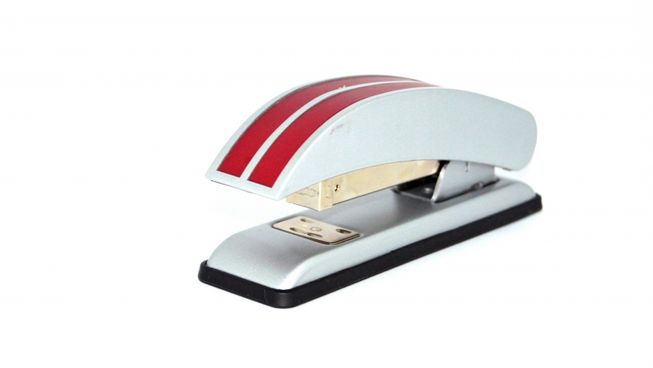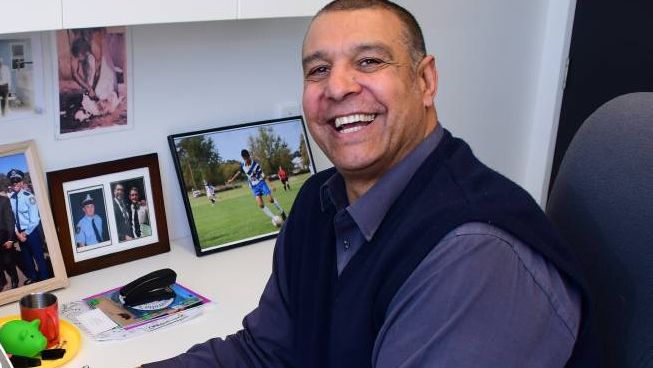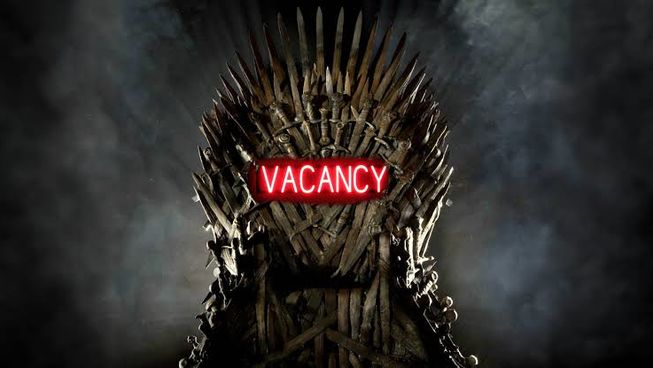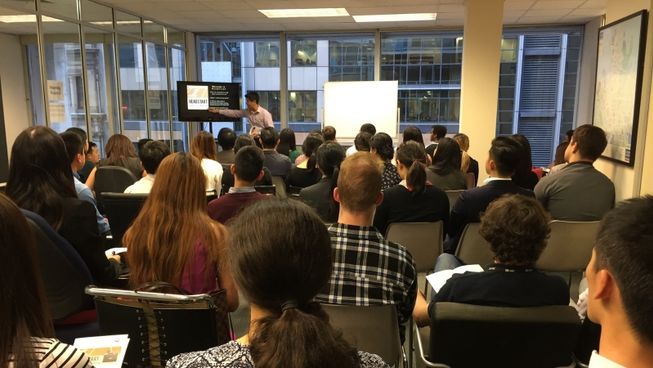Headstart - Uncharted #4: Forgiveness
Topics

Jason is a Headstarter whose brush with Justin Bieber in public has never been lived down despite all his attempts (while he denies he is a "belieber", deep down, we all know where your heart lies.) Soon to be married, Jason has seen much in the workplace and intertwines his experience of forgiveness in this summary of Uncharted #4: Forgiveness.
The Night in a Tweet: We use the gospel to its fullest potential when we forgive and apologise
This term at Headstart we've been looking at the idea of mental maps and how the gospel helps us map out life and plot our paths. We've covered a number of "uncharted" topics and we ended the term by looking at the topic of forgiveness. Much like the Justin Bieber song which asks the question "is it too late now to say sorry?" we can find ourselves hesitant to apologise to other people. Tim Green and his trusty common office stapler (that's right!) helped us chart our way through this difficult topic.
Why is it so Hard to say 'Sorry'?
How we apologise is worth considering, because if we find it hard to apologise over something then it usually means it's something worth apologising for. Our work relationships and the way we witness the gospel to our colleagues can be at stake, depending on how we apologise to people (or whether we even apologise or not). So what makes apologies so difficult?
We identified three main hurdles which make it hard for us to apologise:
- Apologising is a threat to our identity - We feel vulnerable when we apologise, and this can interpreted as a sign of weakness. We don't want to associate ourselves with weakness, or have others view us in that way.
- Apologising is a gateway to shame - We invite people to bring shame upon us when we apologise, and this is a difficult feeling to shoulder. We're at risk of not having other people reciprocate the humility we show to them, and it makes us feel worse off than if we hadn't bothered to apologise in the first place.
- We're comfortable with holding onto negative emotions - Sometimes we're just content being unhappy, and are unwilling to change our circumstances to set relationships right. Perhaps we would rather choose the "flight" response rather than confront the consequences directly.
The Gospel Gamechanger
How does the gospel reshape our mental map and help us overcome the hurdles to say sorry? The gospel has an answer for each of these hurdles:
- New identity (Galatians 3:27-28) - We have a new identity in Jesus because we have been clothed with Christ
- New freedom in Christ (1 John 1:9) - When we confess (apologise for) our sins, Jesus forgives and cleanses us instead of shaming us
- New power of the Holy Spirit (Galatians 5:22) - We are called to embody the fruits of the spirit and allow positive emotions to overpower negative emotions
The Common Office Stapler
Tim bamboozled us tonight by showing us how the common office stapler - a tool we've always had and used - has a secondary function! By reversing the stapler anvil (the metal grooves which bend the staple), you can switch the stapler to a mode which bends the staple outwards instead of inwards - this is apparently used for temporarily stapling paper together. MIND-BLOWN!!!!
The point of Tim's demonstration was to show us that we are not using a stapler to its full potential if we don't know about this secondary function. In a similar way, we are not using the gospel to its full potential if we don't let the above truths change our mental map in navigating through apologies.
The Gospel's Full Potential
The full potential of gospel gives us three things with regards to apologies:
- Humility to admit wrong - Our identity is found in Christ and so we don't need to be concerned about being vulnerable or showing signs of weakness. How other people perceive us doesn't affect who we really are.
- Freedom to apologise - Since we have been forgiven by Jesus and are now without shame, we are free to apologise knowing that we are clean in His sight (even if others try to bring shame upon us)
- Empowered to change - We are compelled by the Holy Spirit to move away from harbouring negative emotions and to strive to bear the fruits of the Spirit, of positive emotions.
It is such liberating news to hear that the gospel changes us so that we can face difficult situations (at work) when apologies and forgiveness is required. The gospel shows us we have nothing to fear when we apologise because everything we are and have is secure in Christ our Saviour.
Good Apologies: a quick chart
The gospel helps us apologise, so then what makes for a good apology? We discussed a few factors that make an apology good, and summarised them into three main aspects:
- Fact: Be specific and name what you are apologising for
- Feeling: Be perceptive to the emotional impact on the other person - resonate and sympathise with how the incident made them feel
- Change: Be genuine in your attitude towards preventing the incident from happening again in the future
Another resource I found quite helpful on the topic of apologies is "The Five Languages of Apology" by Gary Chapman (the author for "The Five Love Languages") and Jennifer Thomas. The authors suggest that we all give and receive apologies in up to five different ways:
- Expressing regret
- Accepting responsibility
- Making restitution
- Genuinely repenting
- Requesting forgiveness
So is it Too Late Now to Say Sorry?
What I've always found hard is how to apologise in a timely and meaningful way, to colleagues, friends, family and loved ones. I was greatly encouraged being able to discuss with fellow young workers the different aspects of apologies, how we each apologise in a different way and are fearful of apologies for different reasons. All of this discussion has surely helped me consider more carefully how others might perceive my apologies. But above all that tonight was a reminder for me to come back to the gospel and allow it to change my heart and shape my mind and rest my trust and assurance in Jesus whenever I need to apologise.
More like this ...







